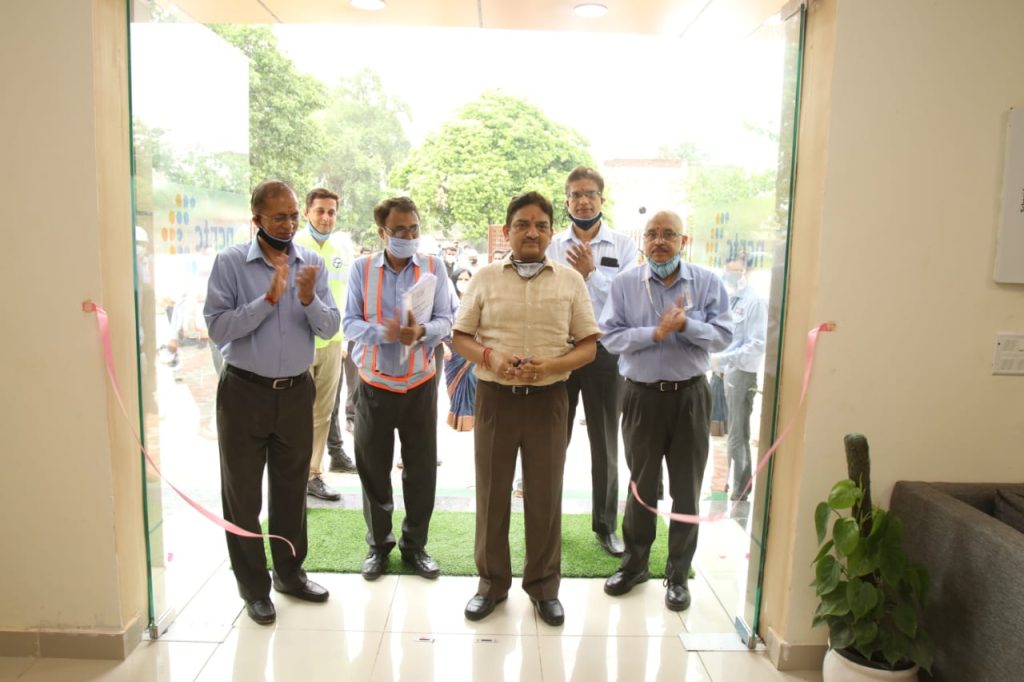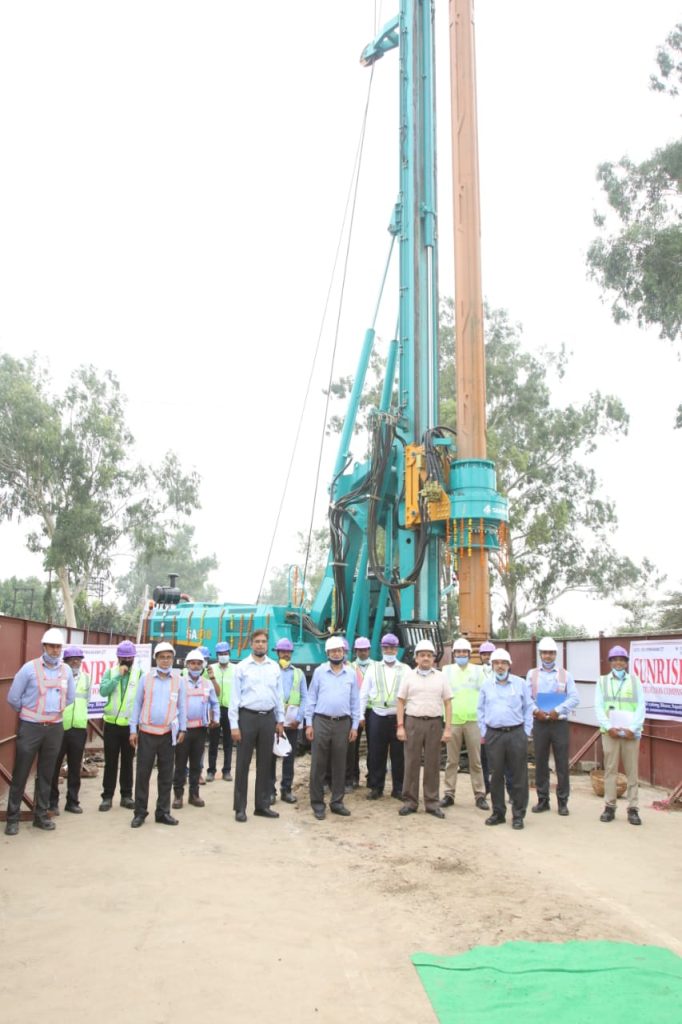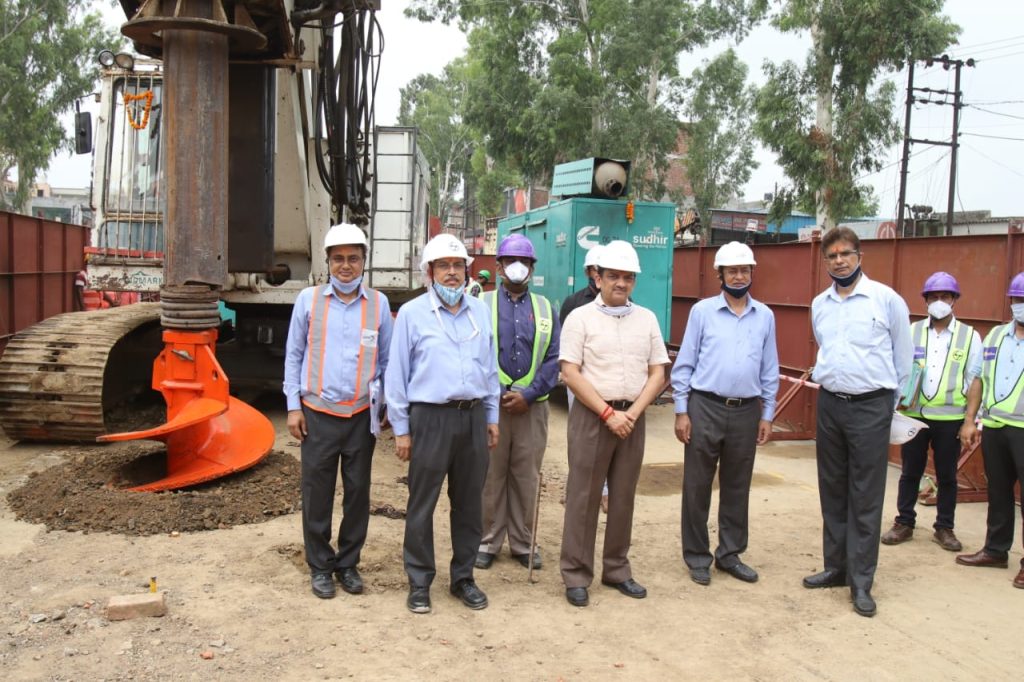NCRTC has geared up construction activities on India’s first Regional Rail between Delhi-Ghaziabad-Meerut. M/s Larsen & Tubro today kickstarted the foundation work in Modinagar and Shatabdi Nagar in Meerut under package 3 works. With this main construction work for other than the priority section of Sahibabad to Duhai has started.
Shri Vinay Kumar Singh, MD, NCRTC today inspected the ongoing works in the entire section along with this newly started construction work. Mr. Singh also overviewed various preparations done for Monsoon. He advised NCRTC engineers and the agency to ensure workers safety and convenience of local residents during construction while taking care of all essential precautions for COVID-19 as specified in the NCRTC issued Standard Operating Procedure.
He has also visited the newly started NCRTC’s site office at Modinagar. This particular site office is constructed in a record time of less than four months during COVID-19 pandemic. All the construction, electrical, signaling, and telecommunication work of the 33 km long stretch between Duhai to Shatabdi Nagar will be taken care by this office.
The construction on the corridor is in full swing, the casting of segments for super structure is in progress at Vasundhara Casting yard. The launching gantry तारिणी 2.1 on package 2 is ready to launch first span of viaduct between Guldhar and Duhai, while the launching gantry तारिणी 1.1 of package 1 is near completion to facilitate the erection of first span near Sahibabad station.. Construction of all the four stations of the priority section – Sahibabad, Ghaziabad, Guldhar, and Duhai is in progress. Electrical utility shifting work is in progress in Vaishali green belt, between EXP 1C to P1 (Total 32 span). A total of 23 EHT lines infringing the Delhi-Ghaziabad-Meerut RRTS Corridor have already been shifted/modified so far. Road widening and utility diversion work are underway between Duhai to Modipuram. The pile load test between Duhai to Muradnagar has been completed.








